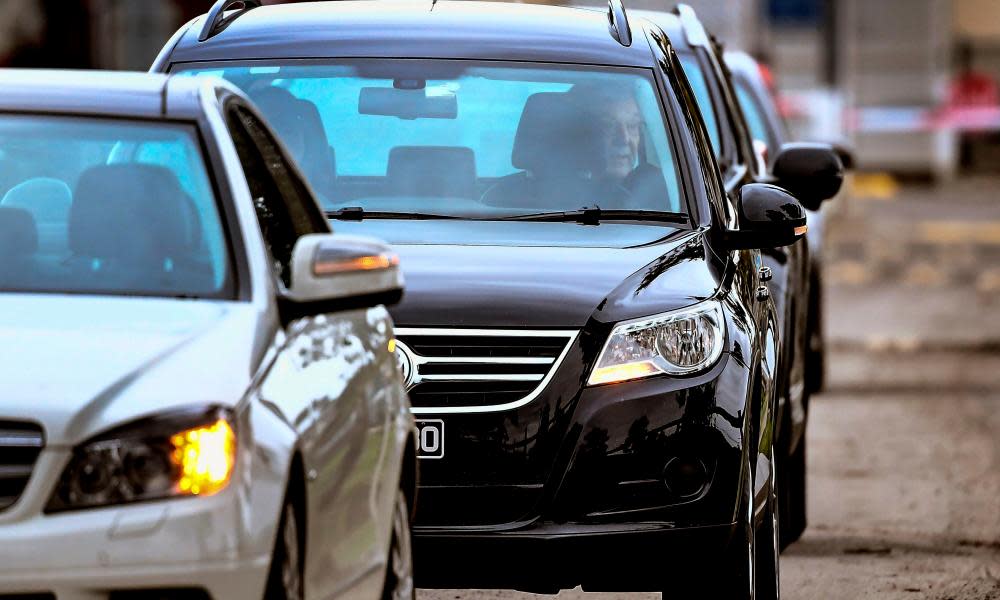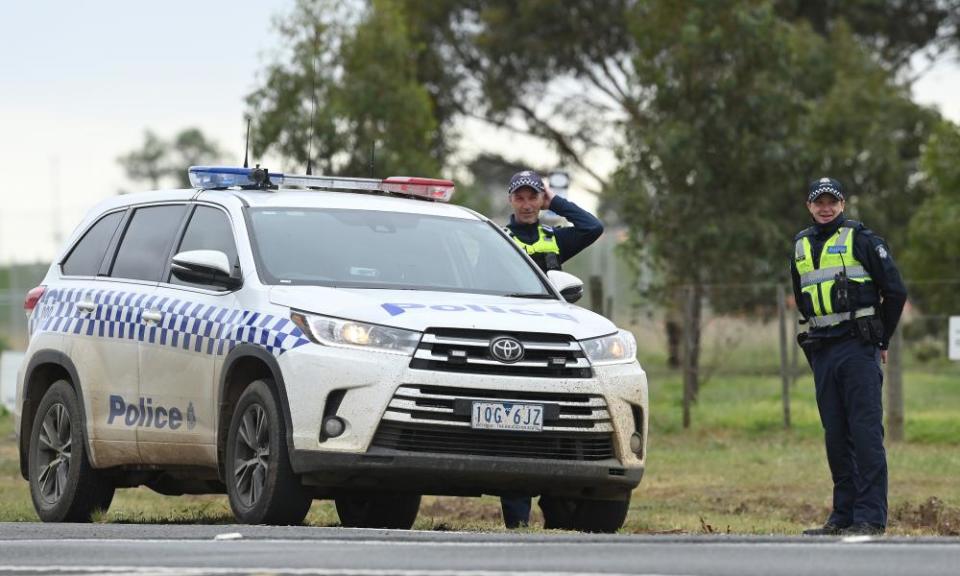George Pell: Australian cardinal released from jail after high court quashes child sexual abuse conviction

Cardinal George Pell, the former financial controller of the Vatican and the most senior Catholic in the world to have been found guilty of historical child sexual abuse, will be freed from prison and have his convictions overturned following a two-year legal battle.
The bench of the high court in Brisbane on Tuesday granted leave for Pell to appeal, ordering his immediate release and quashing the conviction.
The high court found that the jury, acting rationally on the whole of the evidence, ought to have entertained a doubt as to Pell’s guilt with respect to each of the offences for which he was convicted, and ordered that the convictions be quashed and that verdicts of acquittal be entered in their place.
Related: The legal trials of George Pell – timeline
In other words, it was not enough that the jurors found the witness believable, compelling and honest. The other evidence should have called his account into question, the bench found.
In a summary of the judgment, the bench said that “on the assumption that the jury had assessed the complainant’s evidence as thoroughly credible and reliable, the evidence of the opportunity witnesses nonetheless required the jury, acting rationally, to have entertained a reasonable doubt as to the applicant’s guilt in relation to the offences involved in both alleged incidents”.
There was “a significant possibility that an innocent person has been convicted because the evidence did not establish guilt to the requisite standard of proof”, the bench found.
Pell has maintained his innocence since being charged in June 2017. In a statement issued after the decision, Pell said he “holds no ill will towards my accuser”.
“However my trial was not a referendum on the Catholic church, nor a referendum on how church authorities in Australia dealt with the crime of paedophilia in the Church. The point was whether I had committed these awful crimes, and I did not.”

Photograph: Quinn Rooney/Getty Images
In December 2018 a Melbourne jury unanimously convicted Pell on five charges, believing the complainant who gave evidence that some time in December 1996, after presiding over Sunday solemn mass at St Patrick’s Cathedral as archbishop of Melbourne.
The allegations had been the prosecution’s to prove, with many of the witnesses called during the trial in 2018, including former altar servers and senior choir managers, now elderly.
Former choirboys who gave evidence struggled to remember details about the choir procession and the church layout more than two decades after the fact. To convict Pell, the jury had to believe without doubt that the complainant was reliable and honest. They did, but the high court on Tuesday found belief in the complainant as a compelling witness was not enough to convict.
Pell’s legal team was led by prominent Sydney silk Bret Walker SC. In June at Pell’s first attempt at appeal before Victoria’s appellate division of the Supreme court, Walker argued it was “literally impossible” for the complainant to have been abused, saying there was a “formidable list” of factors and events that needed to line up for the offending to be possible.
There was “strong, credible and undispelled” alibi evidence, including from the master of ceremonies at the time Monsignor Charles Portelli and sacristan Max Potter that it was Pell’s practice to greet parishioners on the front steps of the cathedral immediately after mass which would have made it impossible for Pell to be in the sacristy offending, Walker said.
However, the court rejected the appeal by a majority of two to one, forcing Pell’s team to take the case to the high court, the final avenue of appeal. Over two days in March, Walker argued before the full bench of seven judges in Canberra that just because the complainant was believable, it should not discount other evidence that placed his evidence in doubt. Walker told the court that Victoria’s appellant judges may have been unduly influenced by the complainant’s testimony by watching a recorded video of it rather than just reading the transcript of his evidence.
Judd responded by saying that given Pell’s legal team made so much of the complainant’s lack of credibility and believability, Victoria’s appellate court was entitled to watch the video. It did not mean they had elevated it above other evidence, or that they had not given due weight to other evidence from the trial, she said. The jury had considered the entirety of the evidence in context, she added.
But ultimately, the court accepted Walker’s arguments. In an unusual move, the court did not grant Pell leave – in other words, permission – to appeal until Tuesday, after the arguments had already been heard in March. Usually, leave to appeal is granted, then arguments are heard.
In a statement after the verdict, Victoria police said: “We respect the decision of the High Court in this matter and continue to provide support to those complainants involved.
“Victoria Police remains committed to investigating sexual assault offences and providing justice for victims no matter how many years have passed. We would also like to acknowledge the tireless work on this case by Taskforce Sano investigators over many years.”

 Yahoo News
Yahoo News 
